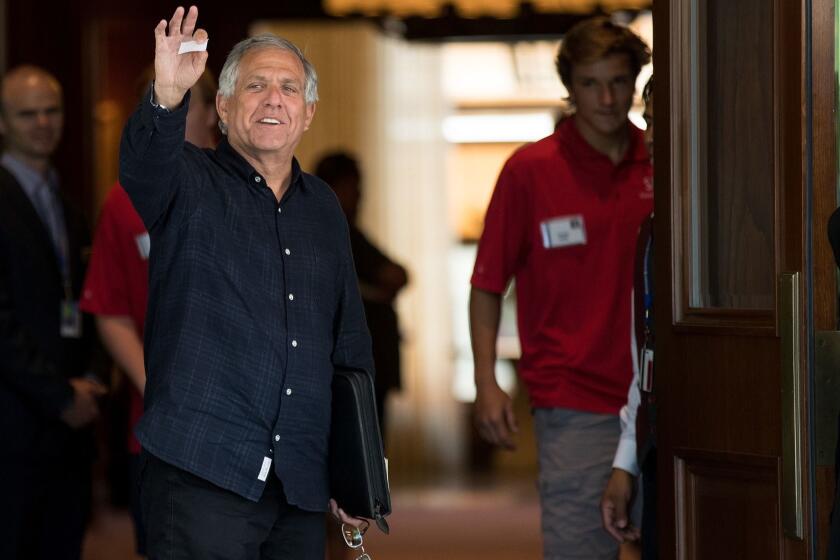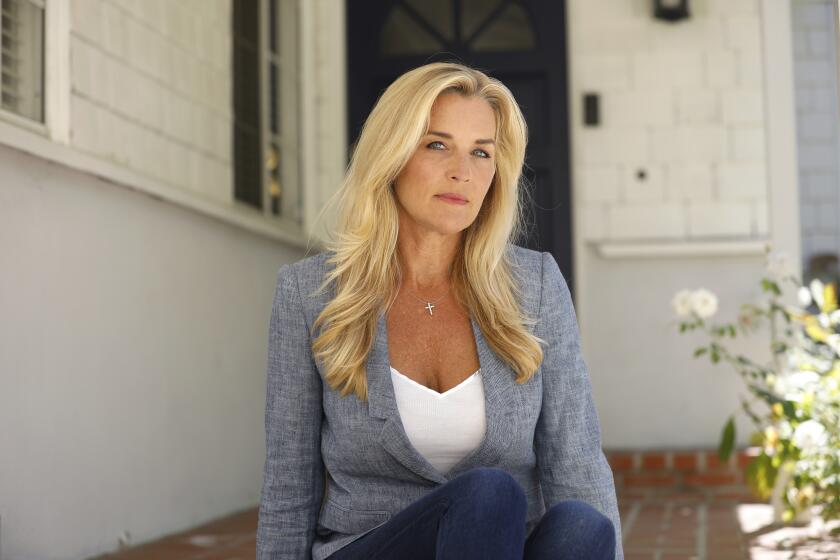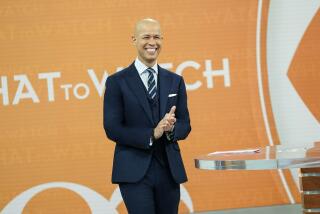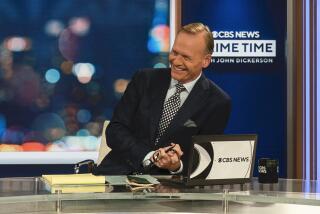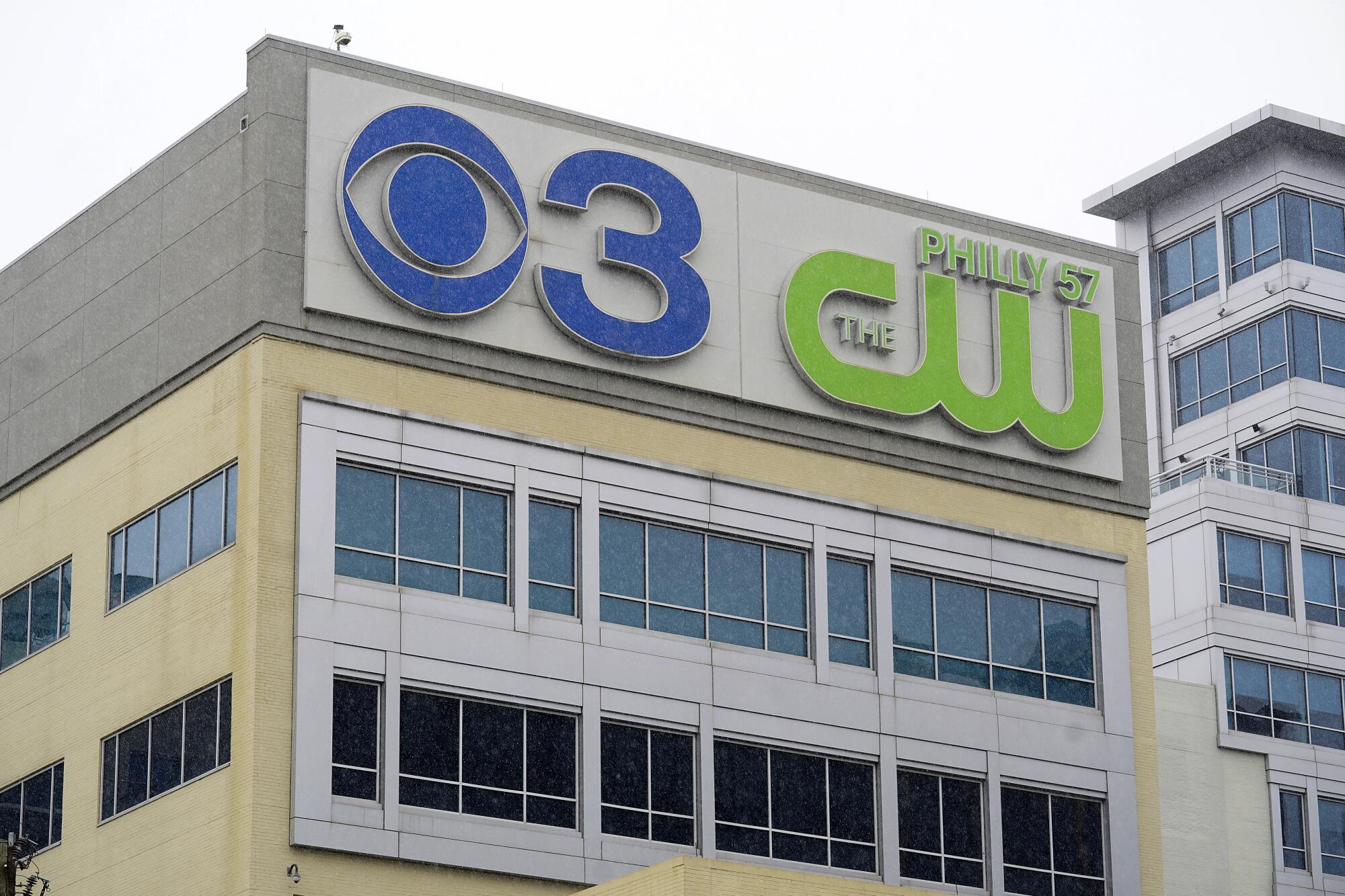
Gripped by scandal in the summer of 2018, CBS came up with a way to contain the crisis.
The television giant’s board hired two outside law firms to investigate sexual misconduct claims against its longtime leader, Leslie Moonves, and to scour the company for traces of a toxic atmosphere.
Lawyers with those high-caliber firms promised “a thorough and independent inquiry.” They invited CBS employees to report “sexual harassment, retaliation or the unfair treatment of women,” according to their Aug. 15, 2018, email.
Margaret Cronan said the message filled her with “tremendous relief.” A year earlier, she had walked away from a prestigious, high-paying position running the newsroom at CBS’ Philadelphia TV station — a job she loved but could no longer stomach.
“The horrific behavior would finally be exposed,” Cronan thought.
The veteran news executive was among five women interviewed by The Times who sought investigators’ help to end alleged mistreatment at CBS’ TV stations. Cronan and the others alleged that CBS Television Stations President Peter Dunn and a top lieutenant cultivated a hostile work environment that included bullying female managers and blocking efforts to hire and retain Black journalists. There also were complaints about a $55-million purchase of a TV station on New York’s Long Island — a deal that included privileges for Dunn and other high-level CBS executives at an ultra-exclusive golf club in the Hamptons.
CBS bought a small Long Island TV station for $55 million. A CBS executive ended up with a membership at an exclusive golf club owned by the seller.
A Times review of court filings, CBS’ internal communications and interviews with two dozen current and former CBS television station employees found that many were troubled by the outcome of the investigation and questioned the company’s commitment to cleaning up its culture. Dunn and another senior executive remain in their jobs, they say, despite allegations of serious misconduct.
Marty Wilke, former general manager of CBS’ Chicago TV station, was among the senior executives who shared information with investigators. Like Cronan, Wilke contends that CBS was so focused on uncovering incriminating information about Moonves that it gave short shrift to the alleged abuses in the TV stations.
“What was that whole investigation about? Was it just for show?” Wilke asked. “The culture starts and stops with Peter Dunn.”
The company, in a statement, said it looked into the allegations about Dunn.
“CBS is committed to ensuring an inclusive and respectful work environment for all its employees,” the company said. “In response to a CBS investigation in early 2019, senior management at the time addressed the situation with Mr. Dunn, and the company has not received any complaints about his conduct during the period since then.”
Covington & Burling, one of the law firms that investigated CBS’ culture, declined to comment. The second firm, Debevoise & Plimpton, did not respond to requests for comment.
Dunn declined to comment on the allegations made against him.
Leslie Moonves was a television great.
CBS has taken steps to reform. Moonves and other top executives are gone. Newsman Charlie Rose was fired three years ago amid allegations of sexual misconduct, and the company forced out the powerful chief of “60 Minutes” and a prominent producer of “Hawaii Five-O” and “MacGyver” following allegations of abusive behavior.
The network, once criticized for its lack of diversity, now offers programs that prominently feature Black characters, including “All Rise” and an upcoming drama, “The Equalizer,” starring Queen Latifah. A veteran female producer runs CBS News, and she picked Norah O’Donnell to anchor “CBS Evening News.” In November, CBS named a Black executive to oversee local news at KCBS-TV Channel 2 and KCAL-TV Channel 9 in Los Angeles, making her the only Black local news director within the CBS stations group. And beginning Feb. 1, an award-winning Black journalist will manage “CBS This Morning.”
Since December 2019, CBS has been part of ViacomCBS, which is led by Bob Bakish — a Viacom veteran who has worked to change the culture. He hired George Cheeks, a former NBCUniversal executive who is biracial, to run the CBS Entertainment Group, which includes the TV stations.
“We are committed to making our company a place of inclusion that reflects, celebrates and elevates the diversity of our audiences,” ViacomCBS said last month.
Still, one unit has remained largely unchanged. Since 2009, Dunn has run the chain of 28 CBS-owned TV stations that employ 2,800 workers, the company said, and contributed an estimated $1.6 billion a year in revenue, according to a document filed in a Pennsylvania legal proceeding. CBS would not confirm the revenue estimate.
Dunn, 61, maintains a tight grip on the stations and has final say over which local anchors and reporters appear on CBS, according to current and former employees and court testimony. It’s a powerful role, because the stations shape local news for millions of viewers in L.A., San Francisco and other cities where CBS owns a TV station.
CBS’ reforms come after years of complaints about its treatment of minorities and women. The Rev. Jesse Jackson led a 1986 boycott after CBS’ Chicago station demoted a legendary Black anchor. In 2000, the company paid $8 million to settle a landmark case brought by the U.S. Equal Employment Opportunity Commission. The agency found that women at six CBS stations, including KCBS in Los Angeles, faced a hostile environment that included sexual harassment and retaliation for complaining.
A Times investigation uncovers claims of discrimination, retaliation and other forms of mistreatment at CBS-owned TV stations, including L.A. outlets.
Last summer, CBS settled an EEOC age discrimination case after managers failed to consider a then-42-year-old traffic reporter, Tammy Dombeck Campbell, for a full-time role at its Dallas station. Instead, the job went to a 24-year-old former NFL cheerleader. CBS admitted no wrongdoing but paid Dombeck $215,000 in “backpay and all other damages,” according to the settlement.
Only three of CBS’ 17 local station general managers are women. Two are people of color: Tom Canedo, a Latino executive who runs the Atlanta CW station, and Brandin Stewart, a Black executive who joined CBS in 2019 in Philadelphia. Six of 11 local news directors are women.
Philadelphia is the nation’s fourth-largest TV market, and CBS’ station there — KYW-TV Channel 3 — has long trailed rivals ABC and NBC.
Black residents would derisively refer to KYW’s newscasts as “White-Witness News” because, historically, many of the on-air journalists were white — in a county where 44% of the population is African American.
Located in Philadelphia’s Center City, KYW is one of the world’s oldest TV stations and the birthplace of the “Eyewitness News” format. According to a former journalist, Black residents would derisively refer to KYW as “White-Witness News” because, historically, many of the on-air journalists were white — in a county where 44% of the population is African American, according to the U.S. Census Bureau.
Dunn managed KYW from 2002 through 2004, before returning to New York. In April 2015, he dispatched a veteran general manager, Brien Kennedy, to bolster KYW’s performance. Kennedy had orchestrated a successful turnaround of CBS’ station in Minneapolis. In interviews with The Times, Kennedy said he immediately recognized that KYW needed greater diversity in prominent roles and more local flavor. When Kennedy arrived, the main anchor team included two white journalists from Arkansas.
“We were never going to compete if we had anchors with no ties to Philadelphia,” Kennedy, 60, said.
Kennedy began a major overhaul that included ousting about a dozen people, including the news director and one of the anchors from Little Rock. A July 2015 cover story in the Philadelphia Daily News tabloid called him “Fire Man.”
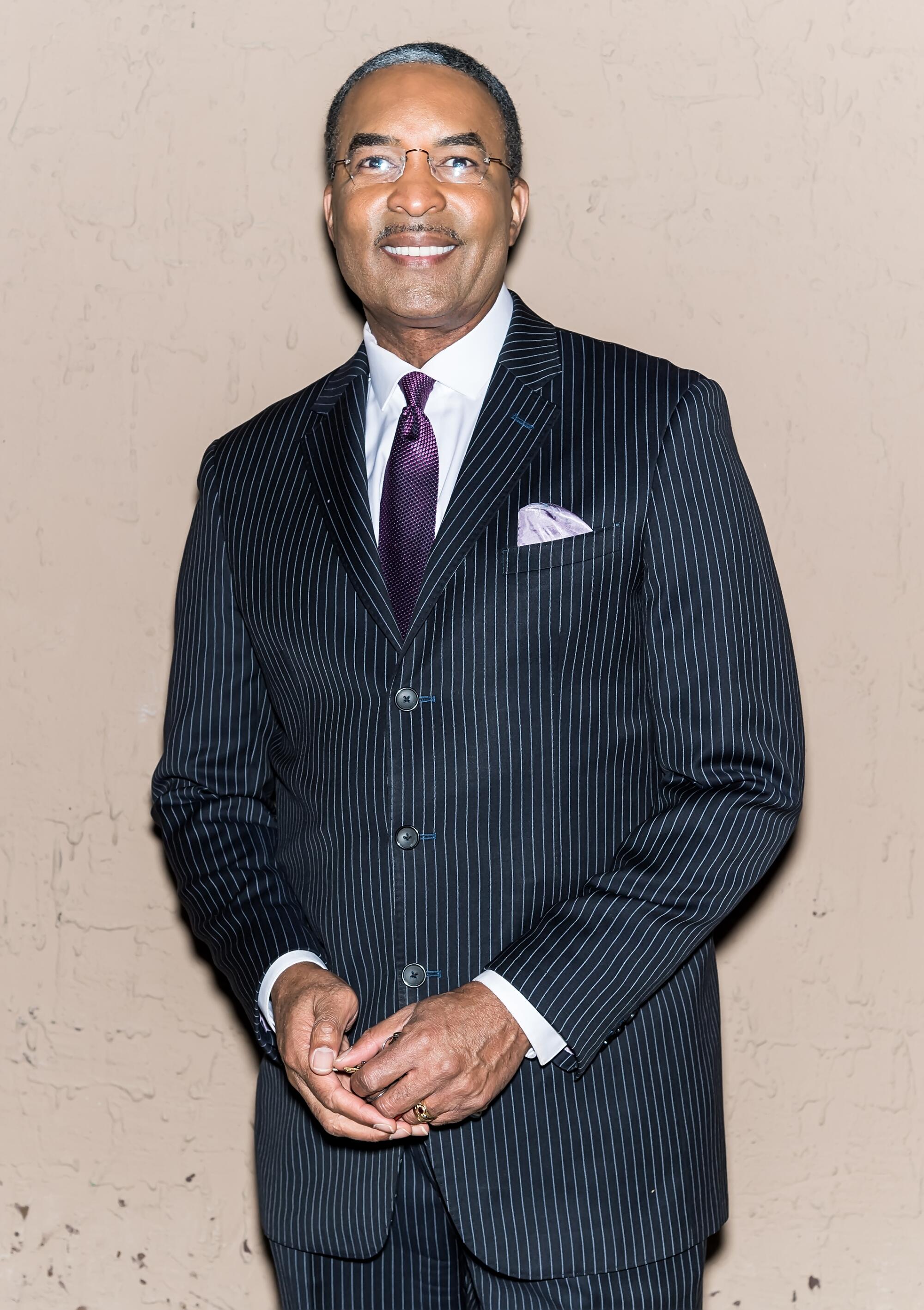
His first major move was to install a hometown hero, Ukee Washington, as lead evening anchor. Kennedy said the promotion of Washington — a Black journalist who has been with KYW more than 30 years — was long overdue. Washington started at KYW in 1986 as a sports anchor and, a decade later, became morning news anchor, where he remained for 19 years.
Kennedy’s ambitious turnaround plan, and his elevation of Washington, persuaded Cronan to return to TV news, she said. The Philadelphia native and former KYW producer had managed newsrooms in West Palm Beach, Fla., and Baltimore before becoming chief marketer for a Philadelphia law firm. In September 2015, she rejoined KYW as vice president for news, overseeing a staff of nearly 100.
Cronan described Washington — a distant cousin of actor Denzel Washington — as a beautiful writer who brought warmth and authenticity to KYW’s newscasts.
Dunn knew Washington from his KYW days and approved the promotion, but Kennedy said in an interview that Dunn frequently disparaged Washington, calling him “just a jive guy.”
“Peter would say: ‘All he does is dance ... dancing, dancing,’” Kennedy recalled in an interview.
Washington was popular in the community. For several years, the alum of the famed Philadelphia Boys Choir led children in a group dance at a Catholic school fundraiser. He created an on-air segment called “Brotherly Love” to highlight heartwarming stories. In one such segment, Washington visited a 5-year-old boy with cancer, and they played video games. KYW featured the clip in a promotional spot. Kennedy said that whenever Dunn saw that promo, he would send Kennedy an email with the word “DANCING.”
In a 2016 budget meeting, Dunn asked about Washington’s transition to lead anchor.
“He’s not doing that ‘jive talking’ anymore? Sometimes, he’s just not speaking my language.”
— Margaret Cronan recalls Peter Dunn saying in a meeting.
“He’s not doing that ‘jive talking’ anymore? Sometimes, he’s just not speaking my language,” Cronan recalled Dunn saying in the meeting, which was attended by several people. Kennedy separately recalled the incident.
“I was shocked that a corporate head would use words like that to describe an African American,” Cronan said. “Besides, Ukee was such a valuable asset to viewers and internally to our team. I couldn’t believe Peter Dunn would even be questioning his performance.”
In a separate 2016 incident, Kennedy emailed Dunn and his lieutenant David Friend in New York to share encouraging ratings. In an email reply viewed by The Times, Friend responded: “Guys Your late news retention is the worst in the [CBS station] group.” Dunn, in an email reviewed by The Times, wrote: “Maybe it’s the dancing!”
Washington did not respond to requests for comment.
In April 2016, KYW’s late local news retained 83% of the audience from the 10 p.m. show. By that summer, KYW had improved its performance, according to documents shared with The Times.
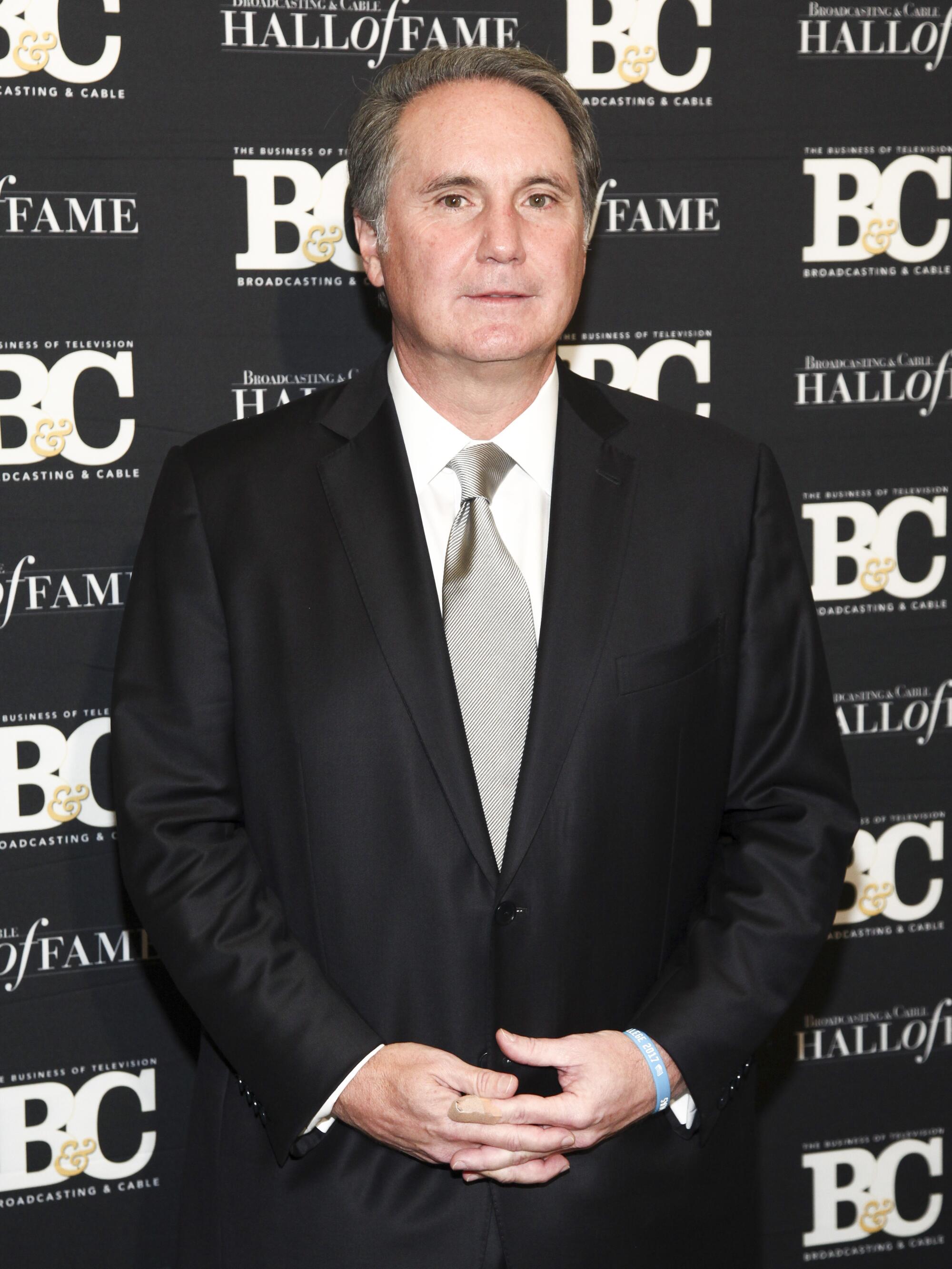
With Washington’s move to evenings, KYW managers needed to retool the morning show.
Cronan said she had a taste of what was to come. She recalled that during an early meeting with Dunn, he asked her whether one of the anchors under consideration was “too gay for Philadelphia.” Cronan said she was startled but responded: “Philadelphia can handle it.”
Dunn rejected KYW managers’ initial choice for co-anchor: a Black female journalist with CBS News, Kennedy and Cronan said. By late 2015, KYW had reached out to Brooke Thomas, a TV news anchor from Oklahoma who was then working in Dallas. Thomas, who is Black, flew to Philadelphia to interview, and she impressed the team.
“At CBS in Philly, we needed some personality, we needed some bravado, and Brooke had all of that,” Kennedy said.
They waited for a green light from Dunn and Friend, senior vice president for news for CBS-owned stations since 2010. Friend and Dunn have a close working relationship, and their directives are often intertwined, agents and CBS insiders said.
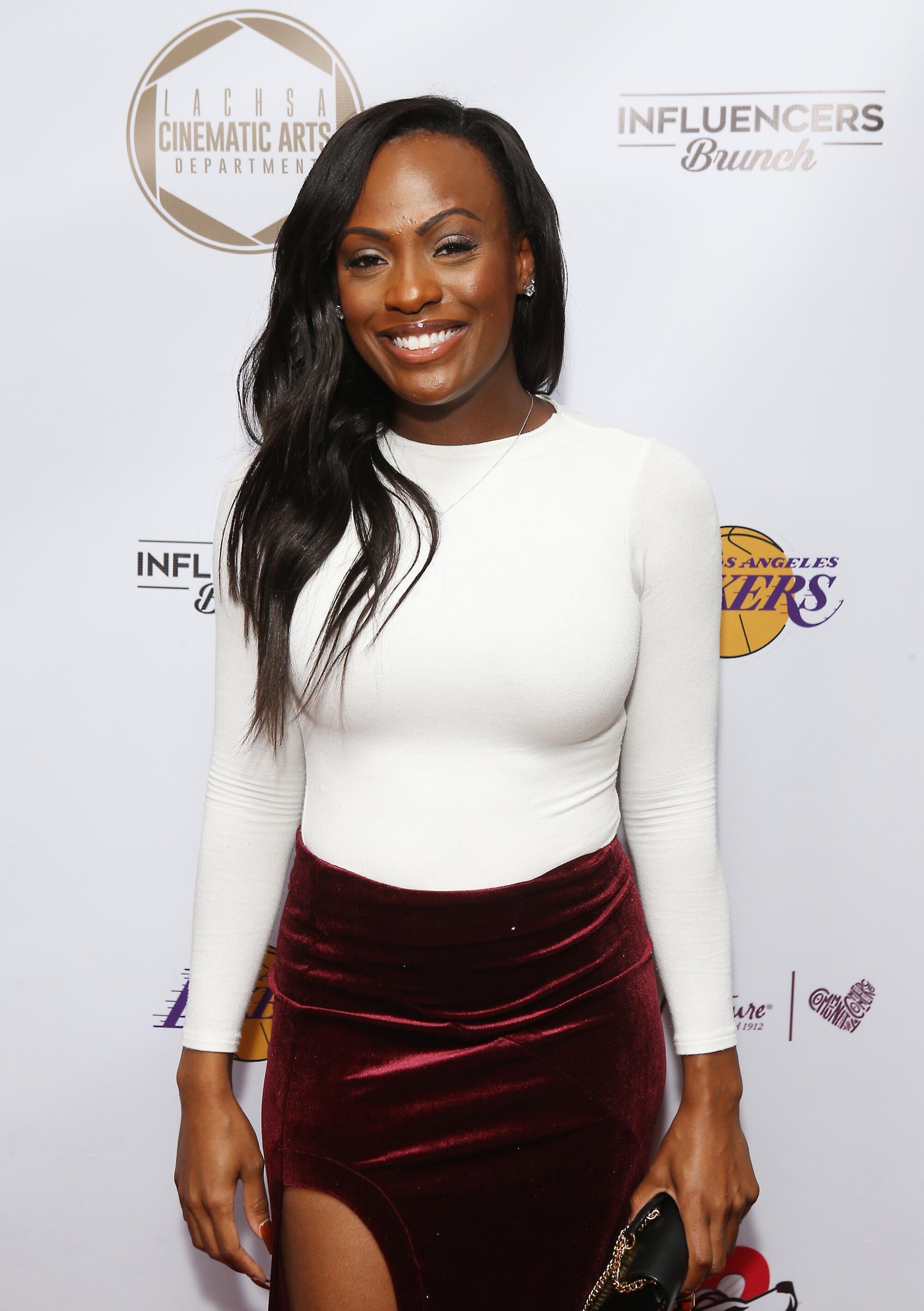
“Neither David nor Peter liked her,” Cronan said of Thomas. “But they finally, begrudgingly, gave us the thumbs-up.”
The morning show reboot took on huge importance. The network companion, “CBS This Morning,” was gaining in the ratings, and KYW saw an opening for its local newscast. The station created a marketing campaign, and Cronan, Thomas and co-anchor Jim Donovan spent days in the studio rehearsing.
The show launched April 4, 2016. Former KYW employees described the mood in the station that day as electric. Cronan said she was certain the debut had gone well.
But the following day, Cronan said, she received an angry call from Friend.
“It was just immediate screaming on the phone, not constructive criticism — just venom and profanity.”
— Margaret Cronan
“It was just immediate screaming on the phone, not constructive criticism — just venom and profanity,” Cronan said. “He screamed: ‘Tell her to shut the [expletive] up,’” in reference to Thomas. “I was flabbergasted,” said Cronan, who kept her notes from that conversation, which The Times has examined. “I’ve never witnessed that type of behavior in the workplace.”
Friend followed up with an email, also reviewed by The Times: “Can you please tell her to stop shouting, stop talking in a fake Southern accent and stop sucking the air out of the show,” Friend wrote.
Kennedy separately described messages he received from Dunn. According to Kennedy, the first of several emails from Dunn began arriving one morning that week shortly after 4:30 a.m., when the newscast began. Kennedy said each message contained one word: “Unwatchable.”
Cronan and Kennedy were stunned. The new anchors had been on the air just two days.
A couple of weeks later, Dunn told KYW managers he was sending Friend to Philadelphia to discuss a “coaching plan” for the anchors, Kennedy and Cronan separately recalled.
“Literally two minutes into the meeting, David said that Brooke had to be terminated as soon as possible,” Cronan said. “He said to stop all of the promotions for the morning show. ... After all that time, energy and money — we had to pull all of it.”
The meeting lasted about 30 minutes, according to Cronan. Both Kennedy and Cronan recounted how, at the conclusion, Friend turned to Cronan, who had been KYW’s news director for seven months. “He looked straight at me and said: ‘You’re running out of time,’” Cronan recalled. “That’s when I thought, ‘Wow.’”
During her tenure as news director, Cronan said, she witnessed racism and experienced verbal insults.
During her tenure as news director, Cronan said, she witnessed racism and experienced verbal insults. At one 2016 meeting, with several executives in attendance, Cronan said Friend asked her: “What are you, a [expletive] idiot?”
Kennedy confirmed the episode. A third former CBS executive told The Times that Cronan was treated abusively. Four other current and former female CBS executives, who were not authorized to comment, also described instances in which they said they were bullied by Dunn between 2017 and 2019.
KYW’s early newscasts with Thomas made audience gains. In a September 2016 sales blast to advertisers, CBS touted a 20% ratings increase. A month later, Thomas was summoned into Kennedy’s office, where Cronan told her “things weren’t working out.” Now in L.A., Thomas declined to comment for this story.
CBS defended its inclusion efforts at KYW, saying 45% of the station’s on-air reporters and anchors are Black, Indigenous or other people of color.
“I believe that I — and our stations — have a strong track record of hiring, supporting and placing women and BIPOC journalists in important roles as anchors, reporters and news directors,” Friend said in a statement to The Times. “These comments I may have made about our employees or prospective hires were only based on performance or qualifications — not about anyone’s race or gender.”
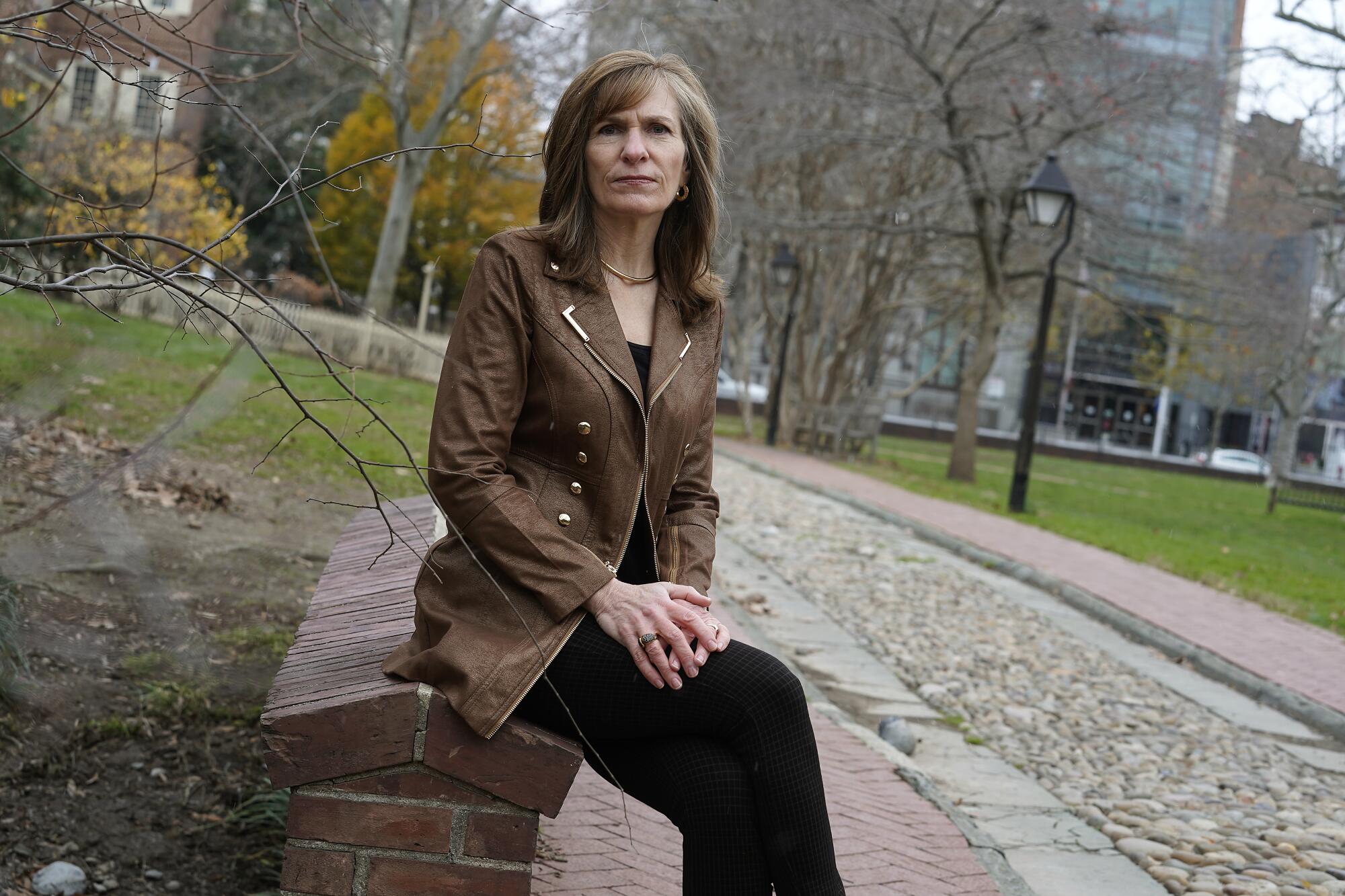
Improving ratings can be difficult because viewers tend to be loyal to their favorite station. KYW made slight gains in several newscasts, including the 11 p.m. news with Washington. However, the progress was uneven, and KYW remained stuck in third place in advertisers’ preferred category of viewers ages 25 to 54. In the May 2019 sweeps, KYW delivered a disappointing performance, ranking third or fourth in that key demographic.
Cronan said she felt as if the bosses in New York were trying to undermine KYW’s turnaround efforts. She pointed to Dunn’s and Friend’s blocking of attempts to hire Black journalists, including Evan Lambert, an Emmy-nominated reporter now in Washington, D.C., and Frank Holland, who at the time was with NBC in Boston and is now an anchor with CNBC. (An email exchange reviewed by The Times showed that Cronan’s lobbying to recruit Holland was rebuffed by Friend.)
KYW has lost several prominent Black journalists. In 2015, a rising star, Steve Patterson, left the station for NBC News. In 2016, Justin Finch, at the time the station’s only Black male reporter, joined an NBC station in Washington. Both declined to comment.
Rahel Solomon, a Philadelphia native and the daughter of Ethiopian immigrants who had replaced Thomas as KYW’s morning co-anchor, also exited. Kennedy said he pressed Dunn for months to extend Solomon’s contract, but during a two-hour-plus phone call to discuss the matter, Kennedy said Dunn raised “bizarre objections,” such as saying, “I hate her face.” (Kennedy described the episode in a July 2019 document, reviewed by The Times, that recounted instances of race and sex discrimination he said he witnessed.) Solomon, who declined to comment, joined CNBC in 2019.
The Times spoke with four Black journalists who worked at KYW. None agreed to an on-the-record interview, citing fear of reprisal. But in conversations, several relayed instances of unequal treatment and racist comments. They described the CBS station as “hostile” and “dysfunctional.” Some expressed frustration with what one called a “cookie-cutter approach” to local news.
“It’s like they have no idea who should be telling the stories,” said one Black journalist, formerly of KYW. “They thought I was disposable, and in that kind of environment, you become an ornament. That happens a lot in the industry — but especially at KYW.”
After failing to win approval to offer a job to another promising Black anchor, Stewart Moore, who works in Orlando, Fla., Kennedy said he became increasingly vocal, telling Dunn that KYW had “a diversity problem.”
The issue came to a head during KYW’s coverage of Bill Cosby’s 2018 rape trial. The story was big in Philadelphia, where Cosby lived. When jurors reached a verdict, KYW had to scramble to get its news anchors on the air. Kennedy said Washington arrived quickly, but his usual co-anchor, a white woman, wasn’t immediately available, so Washington helmed the live coverage with another Black anchor, Natasha Brown.
Kennedy said he soon got a call from Dunn, who was watching KYW’s live feed. “You do have a diversity problem,” Dunn allegedly said, according to Kennedy.
Kennedy said he angrily replied: “Peter, I want you to know that I’m not OK with that.”
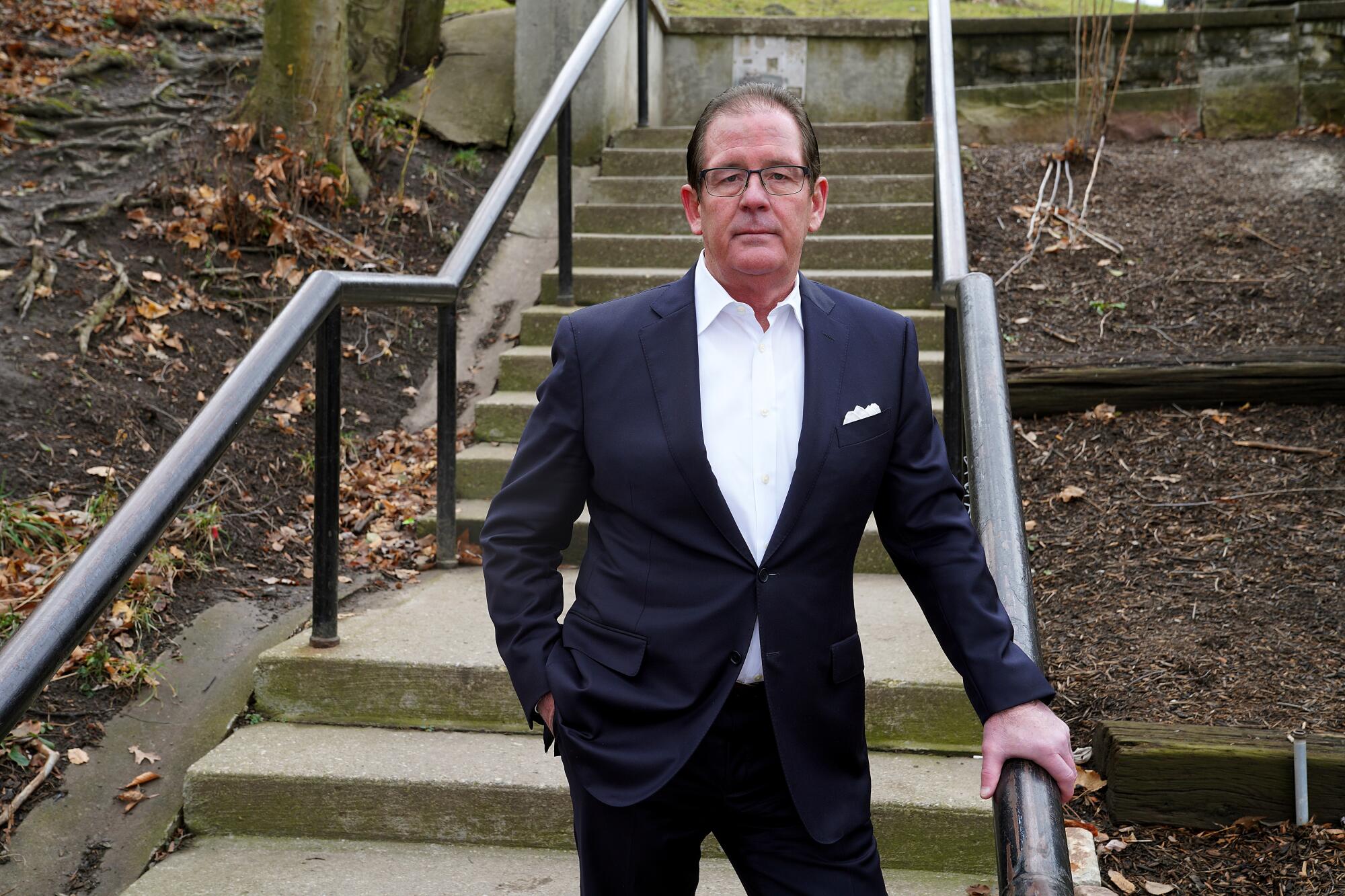
CBS’ 2018 investigation into Moonves and the company’s culture uncovered numerous complaints about the treatment of women in the TV stations group, according to six people familiar with the matter.
Cronan — who now works as a media consultant and runs a fitness apparel company — said she called investigators in September 2018. “Corporate HR was well aware of the behavior and did nothing to stop it,” Cronan, now 56, said. She left CBS in July 2017.
“I no longer could tolerate a culture in which I was expected to defend corporate decisions that I found offensive,” Cronan said.
Wilke, the former head of CBS’ Chicago station, reached out to investigators on Nov. 9, 2018, to ask whether CBS was waiving nondisclosure agreements to allow women to speak freely. She said she was told hers would be waived. Wilke said she began her December 2018 conversation with investigators by saying: “My goal is to change the culture for the benefit of so many good people still at the company.”
When Wilke announced her retirement in 2018 after six years at CBS, it struck some as odd that a 53-year-old woman would retire at the peak of her career. She was a battle-tested manager who had previously run the iconic WGN station in Chicago during a turbulent time — the corporate bankruptcy of its parent, then known as Tribune.
Wilke, in an interview, said she was forced out by Dunn after the two repeatedly clashed. After she left, nearly all the senior female executives in Chicago that Wilke had championed were driven out, she and others said.
But the 2018 investigation sparked hope.
CBS’ board vowed on Dec. 17, 2018, that improving “the working environment for all employees” would be “a high priority.”
Lawyers with the outside firms in early 2019 asked the women for permission to forward their complaints to CBS’ board, four women said. They were encouraged to attach their names to their complaints, and they did.
Cronan said she was assured that CBS would keep her name and experiences confidential. But soon, Cronan said, she heard from CBS colleagues who knew the details.
Wilke said a CBS attorney called her in February 2019, and they eventually spoke for about 40 minutes. But Wilke questioned the thoroughness of the internal investigation, saying she never heard from the lead CBS investigator, even though she had been one of the highest-ranking female executives in the TV station group.
Kennedy said he got a call in February 2019 from the lead attorney, Mark Engstrom, who was then CBS’ associate general counsel. Kennedy said Engstrom asked him to assist with an internal review into alleged misconduct by Dunn. Kennedy said he initially refused because he feared retribution from Dunn, but in April 2019, he agreed to cooperate after being reassured that he would not face retaliation.
Engstrom could not be reached for comment.
On July 22, 2019, Kennedy was summoned for a lunch with Dunn at Butcher and Singer, a tony Philadelphia restaurant that offers porterhouse steaks for $68.
Kennedy arrived early, and Dunn and a finance executive soon joined him. Kennedy said that as a waiter poured glasses of water, Dunn told him: “You’re not going to want to stay for lunch.”
Kennedy said Dunn fired him, citing “poor performance.”
Kennedy was gutted. He’d long been one of CBS’ leading general managers. He said he had received a positive performance review in early 2019 and 110% of his target bonus based on his above-average results for 2018.
Kennedy said Dunn told him to return to KYW and “make up a story” about why he had been let go, which he refused to do. On a cab ride back to the station, Kennedy said he looked at his company-issued phone and watched as his emails were being deleted.
On Jan. 10, 2020, Kennedy filed a discrimination and retaliation complaint against CBS and Dunn with the Pennsylvania Human Relations Commission. The complaint, which has been reviewed by The Times, alleges that Kennedy was fired because he cooperated with CBS’ review of “possible unlawful discrimination and executive misconduct” by Dunn.
The complaint also claims that Dunn engaged in “a pattern of discriminatory behavior through the instruction of others regarding hiring, firing, promotion and pay setting of employees based on race, gender and sexual orientation.”
CBS Television Stations said its response to the commission “disputes Mr. Kennedy’s claim of retaliation and establishes that he was fired for performance.”
Kennedy and his attorney said CBS has so far refused demands to provide key personnel records or copies of emails.
“I’ve always been respectful of my chain of command, but I’m not going to lie about my career,” said Kennedy, who now manages a CBS affiliate in Buffalo, N.Y., for Nexstar Media Group. “I was truthful in the investigation, and I will continue to tell the truth.”
Read the first part of the Times investigation into the CBS TV stations group here.
More to Read
Inside the business of entertainment
The Wide Shot brings you news, analysis and insights on everything from streaming wars to production — and what it all means for the future.
You may occasionally receive promotional content from the Los Angeles Times.

